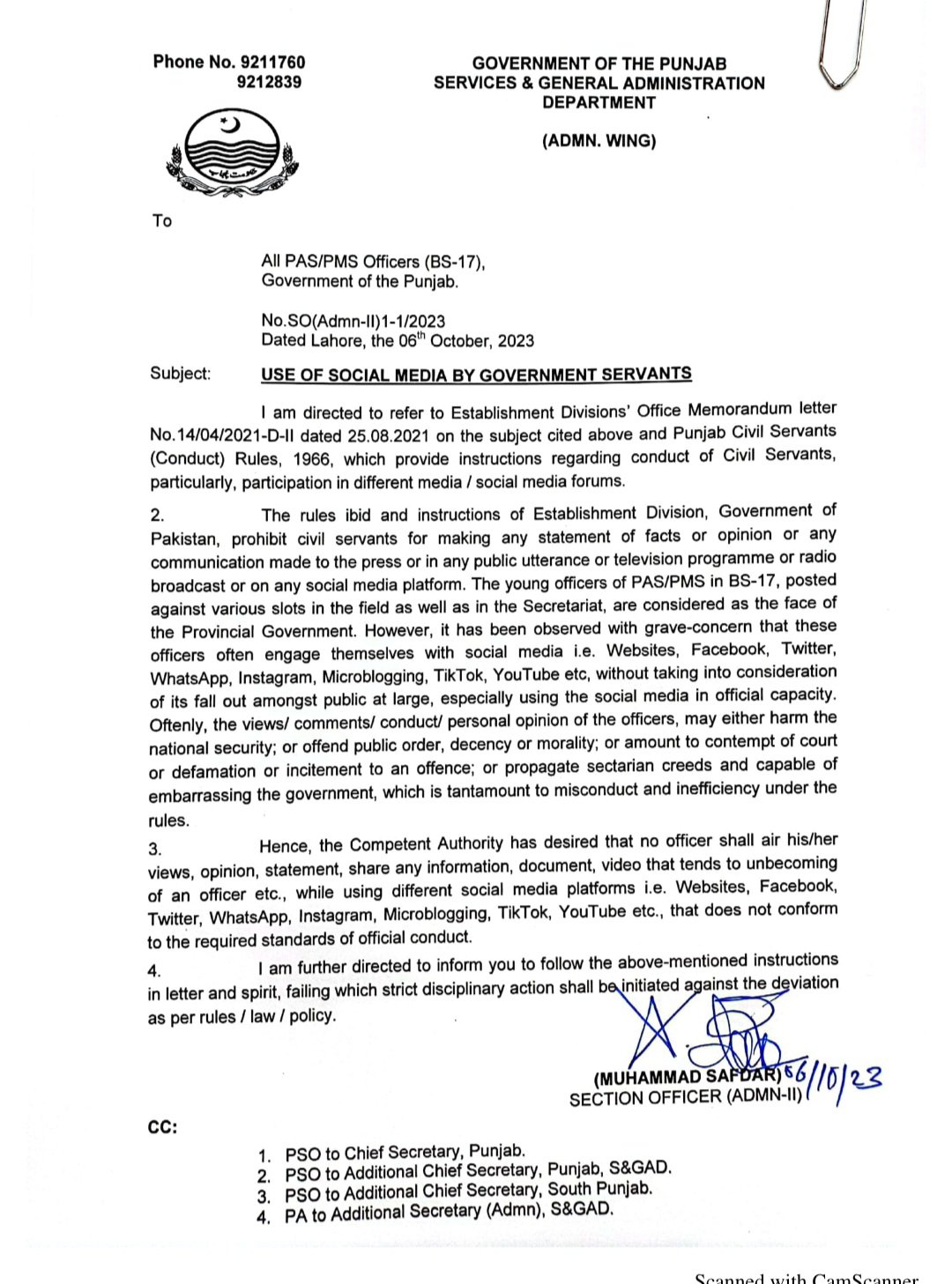Muzzling voices of 'socially' active officers

Pakistan
Punjab government enforces social media guidelines for civil servants
By Javed Iqbal
In Pakistan, where the power of social media is undeniable, imposing strict rules that muzzle the voice of officers and bar them from engaging with the media not only stifles their voices but also runs afoul of the very essence of whistle-blowing laws and an apex court judgement.
Whistle-blowers laws
Whistle-blowers play a pivotal role in exposing a wrongdoing, but when the avenues for their revelations are barricaded, it's not just officers who suffer; it's the transparency and accountability in society that is put at risk.
It's time to question whether these restrictions on social media and media interactions are truly in the public's best interest or merely serve to shield those in power from scrutiny.
The Punjab government has taken decisive steps to regulate the usage of social media platforms by civil servants, both the provincial and federal officers in Punjab. This new directive, issued by the Services and General Administration Department, carries substantial weight in reshaping the online conduct of government officers.
The newly introduced guidelines explicitly require civil servants to refrain from using popular social media platforms like YouTube, WhatsApp, Twitter, TikTok, and other micro-blogging applications where law and order, contempt of court, defamation, state security, etc are compromised. Moreover, these rules extend to curbing government employees' direct interactions with media outlets and expressing personal opinions on public forums, including Facebook and various other social media channels.
The Establishment Division has already reiterated the significance of these regulations, emphasising their crucial role in maintaining order and professionalism within the civil service.
The primary motivation behind these stringent measures lies in the government's concern that unchecked social media usage may lead to complications and disruptions in the efficient functioning of government affairs. These guidelines have been implemented to instill discipline and provide a clear framework for communication channels within the civil service.
Civil servants have been duly cautioned that any violations of these instructions will result in disciplinary action being taken against them. This stern stance serves as a clear reminder for government employees to adhere to the newly established guidelines and exercise sense in their online engagements.
The Punjab government is proactively addressing the need to maintain professionalism among civil servants in their digital interactions. These guidelines are expected to have a profound impact on how government officers navigate the digital landscape while fulfilling their official responsibilities.
Apex Court judgement
In the case of Anita Turab, the Supreme Court of Pakistan had emphasised that civil servants must prioritise their allegiance to the law and the Constitution. They are not obligated to follow orders from superiors that are unlawful or do not align with established practices and constitutional norms.
In such circumstances, they must document their views and, if required, express their dissent.
Way forward amid real questions
Instead of imposing undue bans on all officers, the need is to scrutinise those government officers who frequently use WhatsApp to share sensitive documents.
Some government officers seem engrossed in social media activities like chatting on Facebook during official hours, often neglecting visitors.
Why do some government officers prioritise personal activities such as writing articles or creating YouTube content over public dealings during their official time? How can this trend be addressed and controlled?
It is the need of the hour to replace WhatsApp with homemade apps like Chinese' WeChat to save data breaches.


